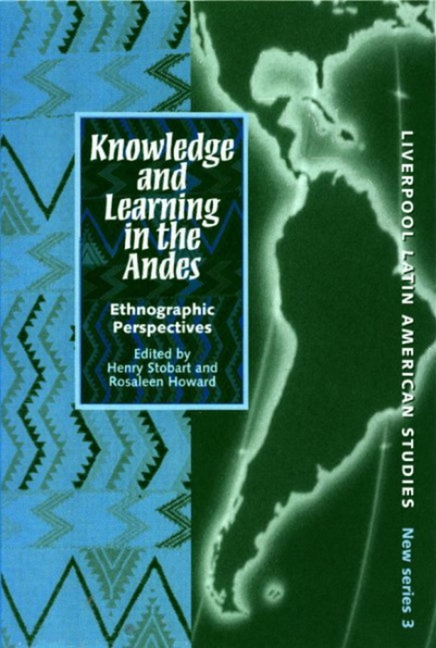Book contents
- Frontmatter
- Contents
- List of illustrations
- List of contributors
- Introduction
- Part I: Multiple Media in the Creation and Transmission of Knowledge
- Part II: Knowledge, Power and Authority
- 5 Coming to Power: Knowledge, Learning and Historic Pathways to Authority in a Bolivian Community
- 6 Juggling Knowledge, Juggling Power: The Role of the Professional Indigenous Activist in San Pablo, Ecuador
- Part III: Conflicting Paradigms of Knowledge
- Index
6 - Juggling Knowledge, Juggling Power: The Role of the Professional Indigenous Activist in San Pablo, Ecuador
from Part II: Knowledge, Power and Authority
- Frontmatter
- Contents
- List of illustrations
- List of contributors
- Introduction
- Part I: Multiple Media in the Creation and Transmission of Knowledge
- Part II: Knowledge, Power and Authority
- 5 Coming to Power: Knowledge, Learning and Historic Pathways to Authority in a Bolivian Community
- 6 Juggling Knowledge, Juggling Power: The Role of the Professional Indigenous Activist in San Pablo, Ecuador
- Part III: Conflicting Paradigms of Knowledge
- Index
Summary
In the last decade, the indigenous movement in Ecuador has gained substantial new ground. This success can be partly attributed to the skills of the professional indigenous activists who form the subject of this chapter. At the forefront of the movement, professional activists form a bridge over the immense socio-economic and cultural gulf between the domain of local indigenous concerns and the arenas of national and, increasingly, international politics. In a multi-layered movement, their role is complex: locally, they seek to meet the needs of a vast array of grassroots organisations that exercise growing control over rural political spaces. Nationally, as parliamentarians, they were active in the drafting of the 1998 Constitution, proposing nothing less than a total restructuring of Ecuadorian society and a radical redefinition of the relationship between the state and its people (IWGIA 1998: 107). Internationally, leaders of CONAIE (the Confederation of Indigenous Nationalities of Ecuador) lobby the powerful in Washington, Geneva and Brussels, funded by an expanding network of influential Western allies (Selverston 1994: 140).
In this chapter, I explore how the professional activist moves between the seemingly irreconcilable worlds of the illustrious conference rooms of international institutions and the more humble earth floors of community meeting houses, by skilfully juggling different ways of knowing the world and distinctive understandings of politics. Walking a tightrope between conflicting, culturally specific, historically derived bodies of knowledge, they must reconcile local indigenous political customs with the norms of national and international political structures. Drawing on my work with the indigenous NGO, CEPCU (the Centre for Pluricultural Studies), in the San Pablo region of northern Ecuador in 1996 and 1997, I look at how the relationship between profesionales indígenas (indigenous professionals), as they call themselves, and comuneros (community members) is affected by this need to balance community ways of knowing and practising politics with the priorities of national and international actors.
- Type
- Chapter
- Information
- Knowledge and Learning in the AndesEthnographic Perspectives, pp. 127 - 138Publisher: Liverpool University PressPrint publication year: 2002



